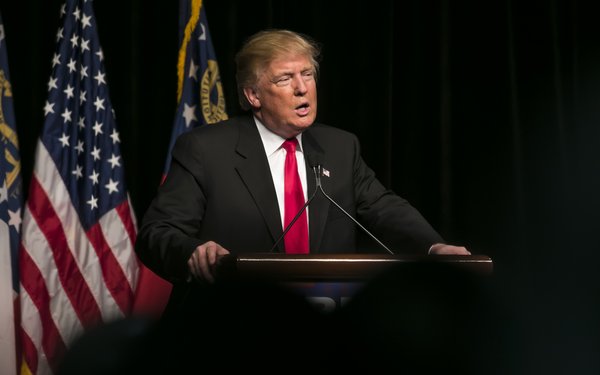
In a room full of magazine media insiders,
it is nearly impossible to avoid talking politics.
At this year’s 2017 American Magazine Media Conference (AMMC), held Wednesday in New York City, a panel of editors discussed
journalistic standards in a world riddled with fake news.
They also discussed the media’s relationship with the current administration.
The panel included Jess
Cagle, editorial director of People and Entertainment Weekly; Jane Francisco, editor-in-chief of Good Housekeeping and editorial director of Hearst Lifestyle Group; Cindi
Leive, editor-in-chief of Glamour; Adam Moss, editor-in-chief of New York; and Liz Vaccariello, editor-in-chief of Meredith Parents Network. Gretchen Carlson, the news anchor who
made headlines when she sued former Fox News boss Roger Ailes for sexual harassment last summer, moderated the panel.
While Carlson quipped that she didn’t want the
conversation to get “too political,” it was inevitable that editors would not stay silent on the aggressive stance President Donald Trump’s administration has taken against the
media.
"There's a sense in this country right now that the media is under attack...but we have a tremendous amount of power,” Leive said.
On reporting in the
Trump era, Moss said that publications have to “somehow be agile and aggressive and careful at the same time.”
Cagle said, “Striking the right tone is a big part of
what we do. You don't want to be a coward, but you also don't want to needlessly alienate half of your audience.”
In November, People received criticism and even threats
of a reader boycott when it published a cover story
featuring then president-elect Donald Trump, with the teaser: “His life, his family & his astonishing journey to the White House.”
Many were upset the magazine gave
Trump a “sympathetic” portrayal in the latest article, in contrast to a previous article published by a former People reporter, Natasha Stoynoff, who recounted an alleged assault by
Trump in 2005.
Cagle defended the story in a memo to staff, writing: "I assure you that the cover on the president-elect is in no way a celebration or endorsement of this deeply
polarizing figure. And we continue to stand steadfastly by Natasha.”
Some readers said they were “sickened” to see Trump on the cover, while others were
“thrilled," Cagle noted in the memo.
At the panel, Cagle said while all journalists are steadfastly dedicated to fair journalism, they are running a business, and alienating
one side of the aisle means losing readers and ad dollars.
Yet in the panel that followed, CEO of Condé Nast Bob Sauerberg noted that after the election, “subscriptions
across all of our titles were up 150%," likely due, in part, to Vanity Fair's resilient approach to Trump and his policies.
President Trump tweeted in December
that Vanity Fair was “way down, big trouble, dead,” but just 24 hours later, the magazine gained 13,000 new subscribers, a 100-fold rise in average daily subscriptions. This was the
highest number of subscriptions sold in a single day at Condé Nast.
Leive said “it's a great time for those of us who are in traditional media to be really honest about
the calls we make." Carlson noted this is also a time of reflection and a renewed sense of importance for those in the media. "Newsrooms all around the country are really sitting back and thinking
about what we do every day,” she said.
But when the topic of fake news came up during the panel, Vaccariello voiced her worry about “the disappearance of facts and
information. We have a responsibility to explain and support real science,” she said.
Cagle noted the “commitment to journalism and always being on high-alert for fake
news is 24/7.”
It has become more important than ever to get things right, he added. “The last thing you want to be doing — particularly in this climate — is
giving the White House anything to call you out on."
Leive agreed that White House “doesn't make us afraid. We can't live in fear.”
Separately, chairman
and CEO of Meredith Corp. Stephen Lacy took a moment to give a rallying call to those in the room to come together and advocate for positive change as an industry.
For example, he
called on publishers to resist renewal of a recently expired postal surcharge; higher postage rates could cripple the print industry. “Together we are a lot more powerful than any of us are
individually,” he said, to a round of applause.